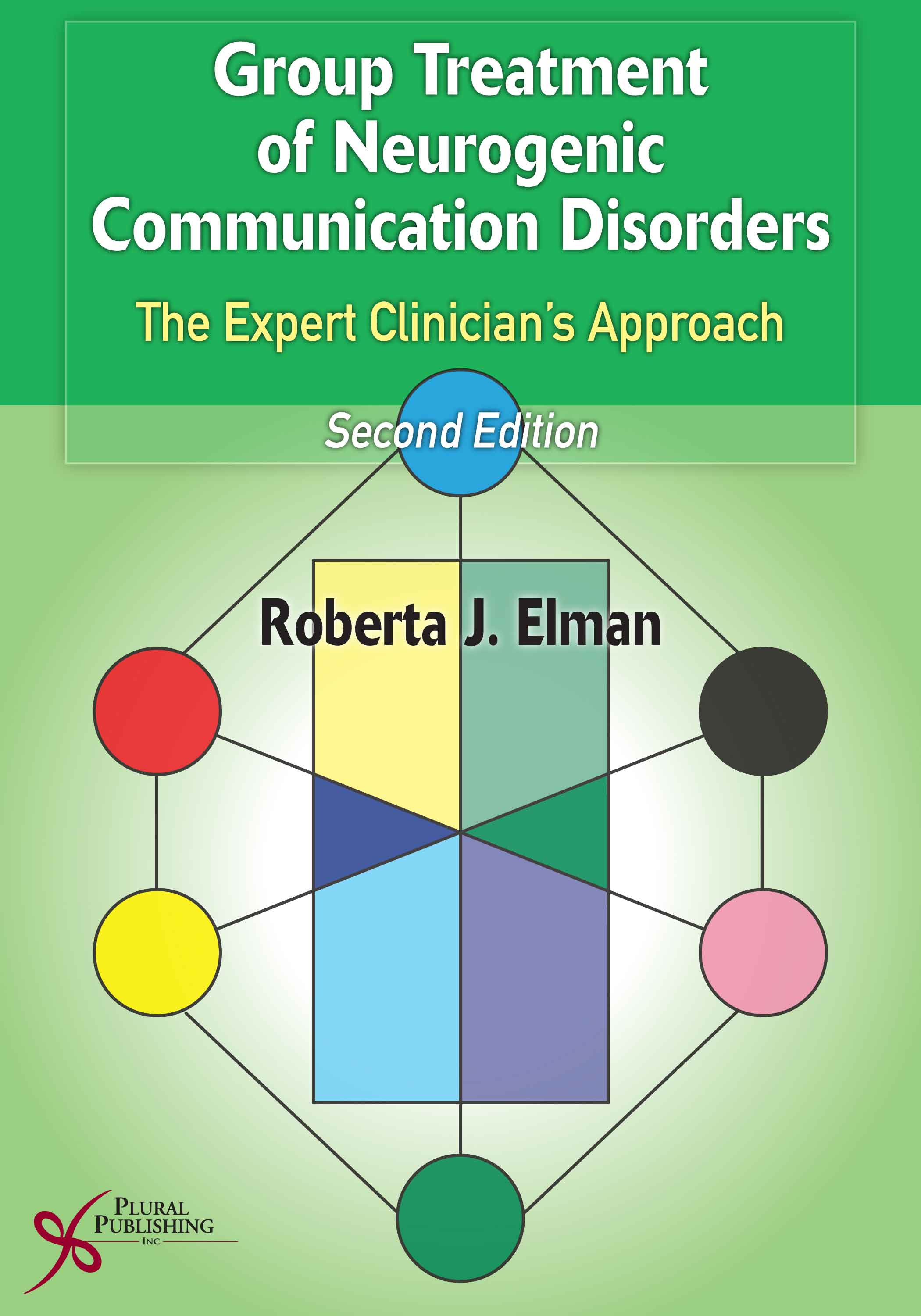
Group Treatment of Neurogenic Communication Disorders: The Expert Clinician's Approach
Second Edition
Roberta J. Elman
Details: 383 pages, B&W, Softcover, 7" x 10"
ISBN13: 978-1-59756-070-2
© 2007 | Available
For Instructors
Purchase
- The book is designed for day-to-day use for busy practitioners
- Expert clinicians are the authors of each of the chapters giving the reader authoritative guidance
- Each chapter follows the same basic outline for quick and accessible reference
- Tables, charts, and summaries enhance the text
This newly expanded second edition is the definitive reference guide to clinical models, as well as specific clinical techniques, for providing client-centered group treatment for aphasia and other neurogenic communication disorders.
Introductory chapters provide a comprehensive overview of group treatment, group process and group dynamics. Contributors, all of whom are practicing expert clinicians from throughout the United States, Canada, South Africa, Australia, and the United Kingdom, give an in-depth description of their programs:
- philosophy of program
- entry criteria
- client assessment of clients
- establishment of treatment goals
- documentation of progress
- clinical techniques utilized
- ischarge criteria and reimbursement issues
- detailed information on the day-to-day workings of their programs
- case examples and protocols for assessment or documentation
Filling the void in current educational and clinical texts, Group Treatment of Neurogenic Communication Disorders: The Expert Clinician's Approach necessarily provides a wealth of insight and global perspective in the provision of care in aphasia and related conditions for students, clinicians, and professionals in other health-related disciplines.
Reviews
"this book is essential. Group intervention strategies offer distinctive benefits as a supplement or in some cases a replacement to traditional one-on-one modes of treatment. Elman has organized, coordinated, and gathered a team who advance these concepts brilliantly. This book should be on the desk of any clinical researcher, teacher, or clinician who struggles with the challenges of brain-based communication loss."
—Leonard L. LaPointe, PhD, Florida State University
“...[This book] meets the author's worthy objectives of providing an accurate account of how clinicians experienced in providing group therapy do so successfully...The author includes several examples of diagnostic tools, treatment plans, and activities that would be helpful. This book would be extremely useful to student clinicians or certified speech-language pathologists conducting group treatment. The detailed and practical information in this book is necessary when first learning to conduct group treatment and is not always found in more general texts on neurogenic communication disorders. This second edition provides updated information that improves the quality of this book."
—Sarah Colle, BA, George Washington University, Doody's Review Service
"Named to Doody's Core Titles in the Health Sciences 2015 list"
—Doody’s
- I. Front Matter
- Preface
- Acknowledgements
- Introduction to Group Treatment of Neurogenic Communication Disorders
Roberta J. Elman - Group Process, Group Dynamics, and Group Techniques with Neurogenic Communication Disorders
Susan E. Adair Ewing - Measuring Outcomes of Group Therapy
Kathryn L. Garrett and Jane T. Pimentel - Reimbursement Issues Particular to Group Treatment
Cynthia Busch
- II. Aphasia
- III. Speech-Language Pathologist Facilitated Groups
- 1. Aphasia Group Communication Treatment: The Aphasia Center of California Approach
Ellen Bernstein-Ellis and Roberta J. Elman - 2. A Problem-Focused Group Treatment Program for Clients with Mild Aphasia
Roberta C. Marshall - 3. Rebuilding Identity through Stroke Support Groups: Embracing the Person with Aphasia and Significant Others
Barbara B. Shadden
- 1. Aphasia Group Communication Treatment: The Aphasia Center of California Approach
- IV. University Groups
- 1. Clients as Teachers: Two Aphasia Groups at the University of Queensland
Linda E. Worrall, Bronwyn J. Davidson, Tami J. Howe, and Tanya A. Rose - 2. Aphasia Groups in a University Setting
Pelagie M. Beeson and Audrey L. Holland - 3. Contextual Group Communication Therapy for Persons with Aphasia: A Scaffolded Discourse Approach
Kathryn L. Garrett, Caterina F. Staltari, and Laura J. Moir - 4. "We all speak the same language, we all speak aphasic": The Evolution of Therapy Groups within a Changing Sociopolitical Context
Claire Penn and Dilys Jones
- 1. Clients as Teachers: Two Aphasia Groups at the University of Queensland
- V. Volunteer and Participant Facilitated Groups
- 1. Groups in the Aphasia Institute's Introductory Program: Preparing to Live Successfully with Aphasia
Aura Kagan, Rochelle Cohen-Schneider, Charline Sherman, and Lorraine Podolsky - 2. Making Connections: Involving People with Aphasia as Group Facilitators
Tom Penman and Carole Pound - 3. The Power of Aphasia Groups: Celebrating Roger Ross
Audrey L. Holland - 4. "From the Ground Up": The Talkback Group Program in South Australia
Deborah Hersh
- 1. Groups in the Aphasia Institute's Introductory Program: Preparing to Live Successfully with Aphasia
- VI. Right Hemisphere Damage
- 1. Group Treatment for Patients with Right Hemisphere Damage
Leora R. Cherney and Anita S. Halper
- 1. Group Treatment for Patients with Right Hemisphere Damage
- VII. Traumatic Brain Injury
- 1. Traumatic Brain Injury: Early Intervention
Rita J. Gillis - 2. Community Oriented Group Treatment for Traumatic Brain Injury
Rita J. Gillis
- 1. Traumatic Brain Injury: Early Intervention
- VIII. Dementia
- 1. Group Cognitive-Communication Treatment for People with Dementia
Tammy Hopper
- 1. Group Cognitive-Communication Treatment for People with Dementia
- IX. Index
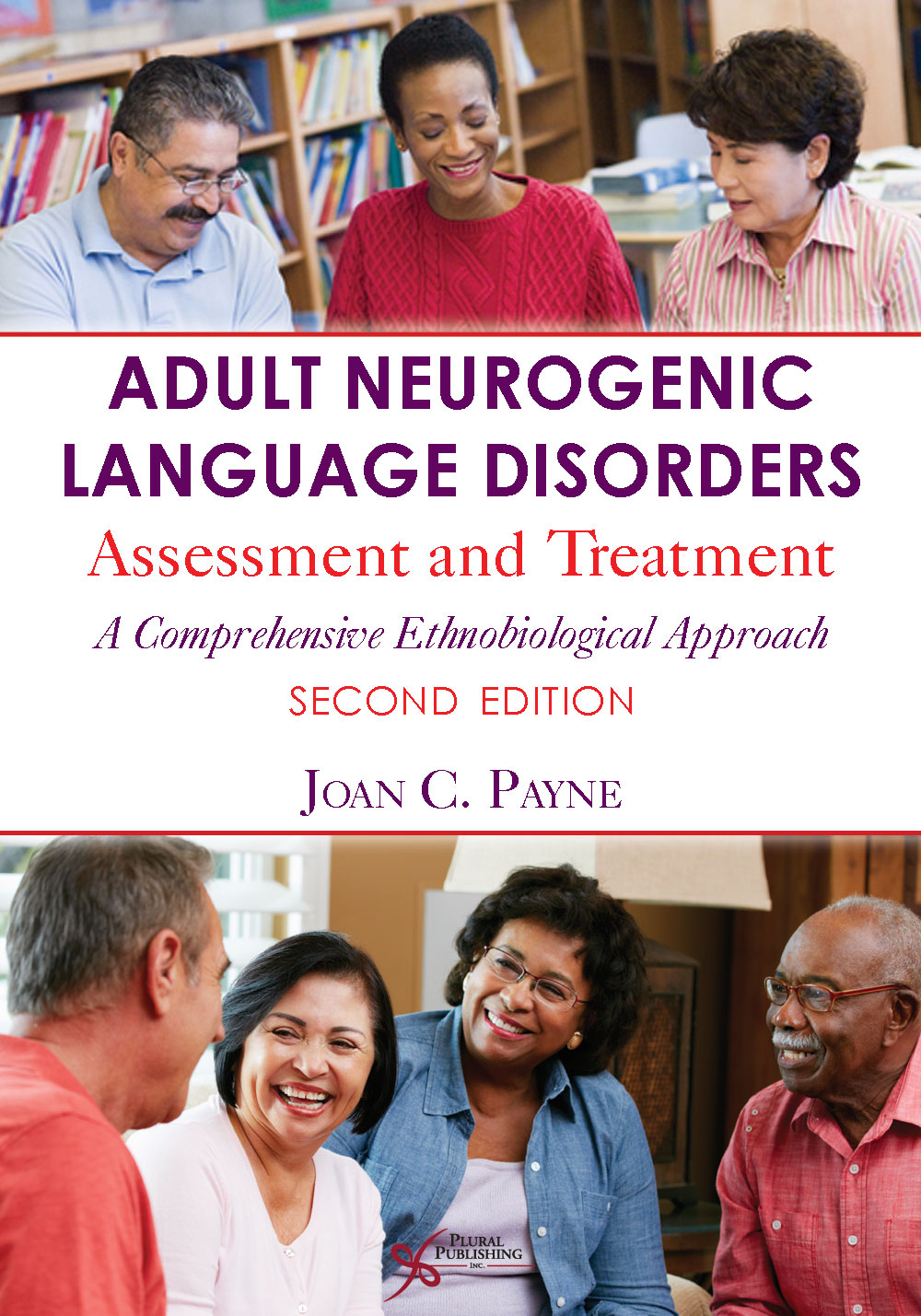
Adult Neurogenic Language Disorders: Assessment and Treatment. A Comprehensive Ethnobiological Approach
Second Edition
Joan C. Payne
Details: 392 pages, B&W, Softcover, 7" x 10"
ISBN13: 978-1-59756-503-5
© 2014 | Available
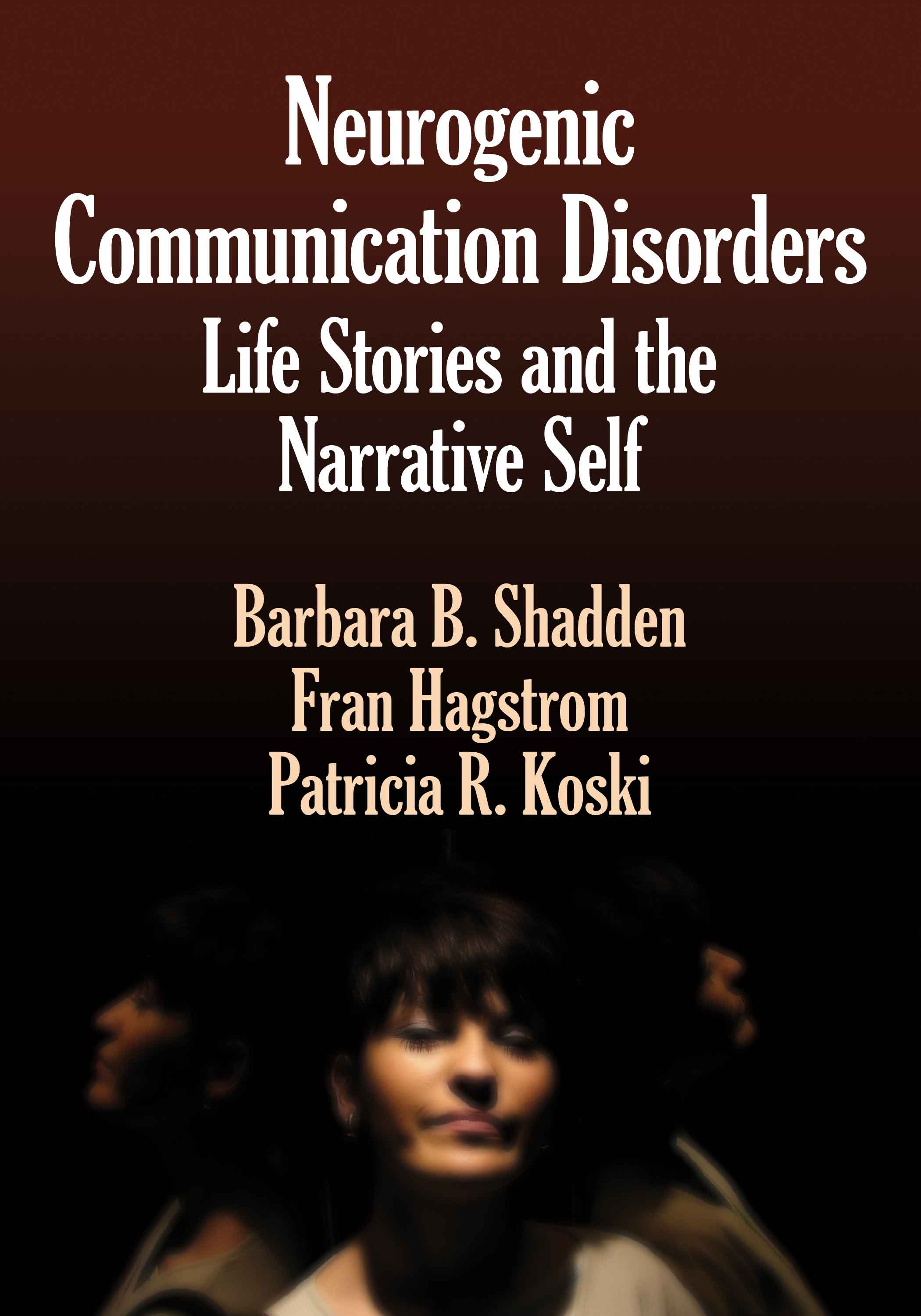
Neurogenic Communication Disorders: Life Stories and the Narrative Self
First Edition
Barbara B. Shadden, Fran Hagstrom, Patricia R. Koski
Details: 257 pages, B&W, Softcover, 7" x 10"
ISBN13: 978-1-59756-136-5
© 2008 | Available
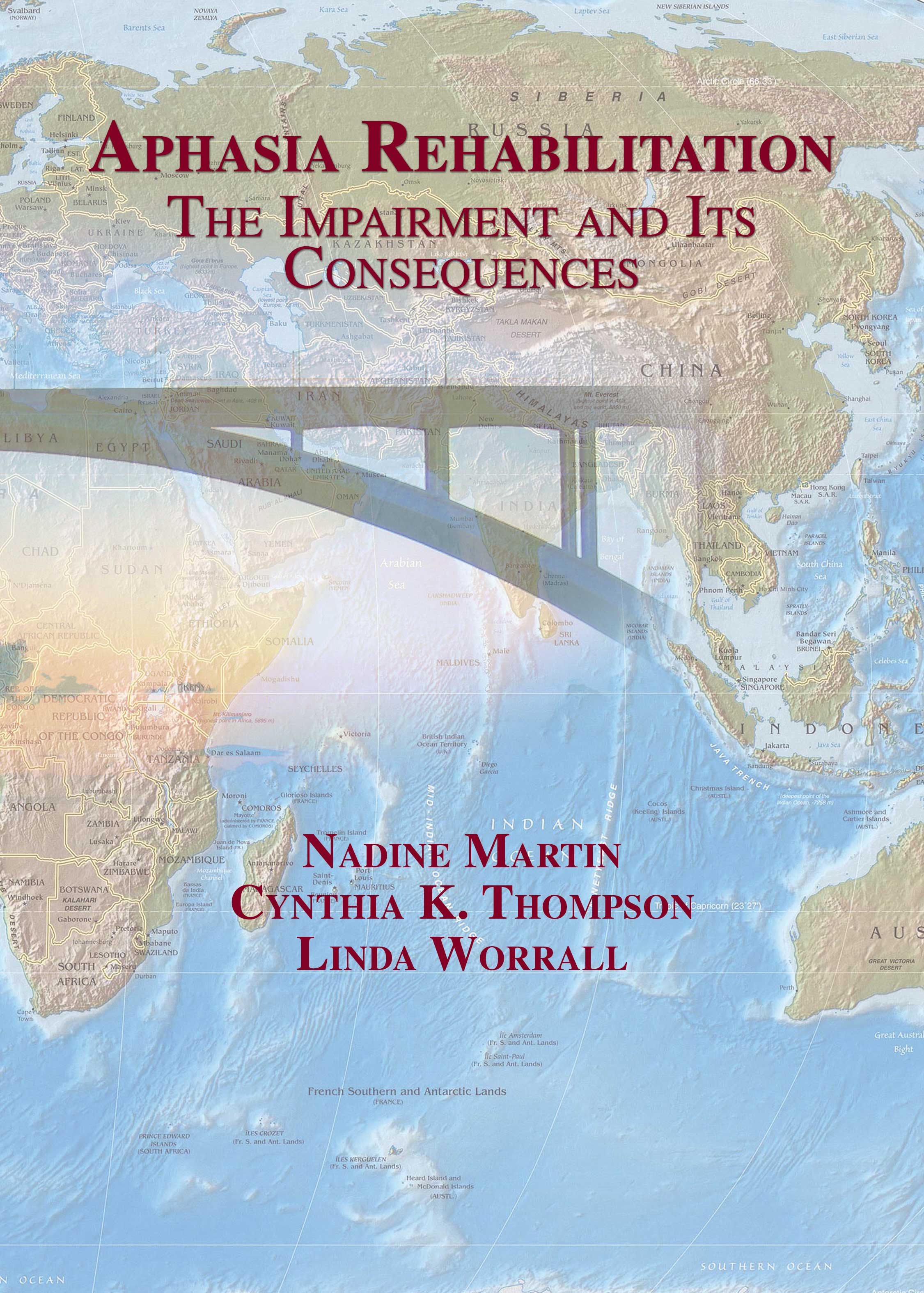
Aphasia Rehabilitation: The Impairment and Its Consequences
First Edition
Nadine Martin, Cynthia K. Thompson, Linda Worrall
Details: 277 pages, B&W, Softcover, 6" x 9"
ISBN13: 978-1-59756-162-4
© 2008 | Available
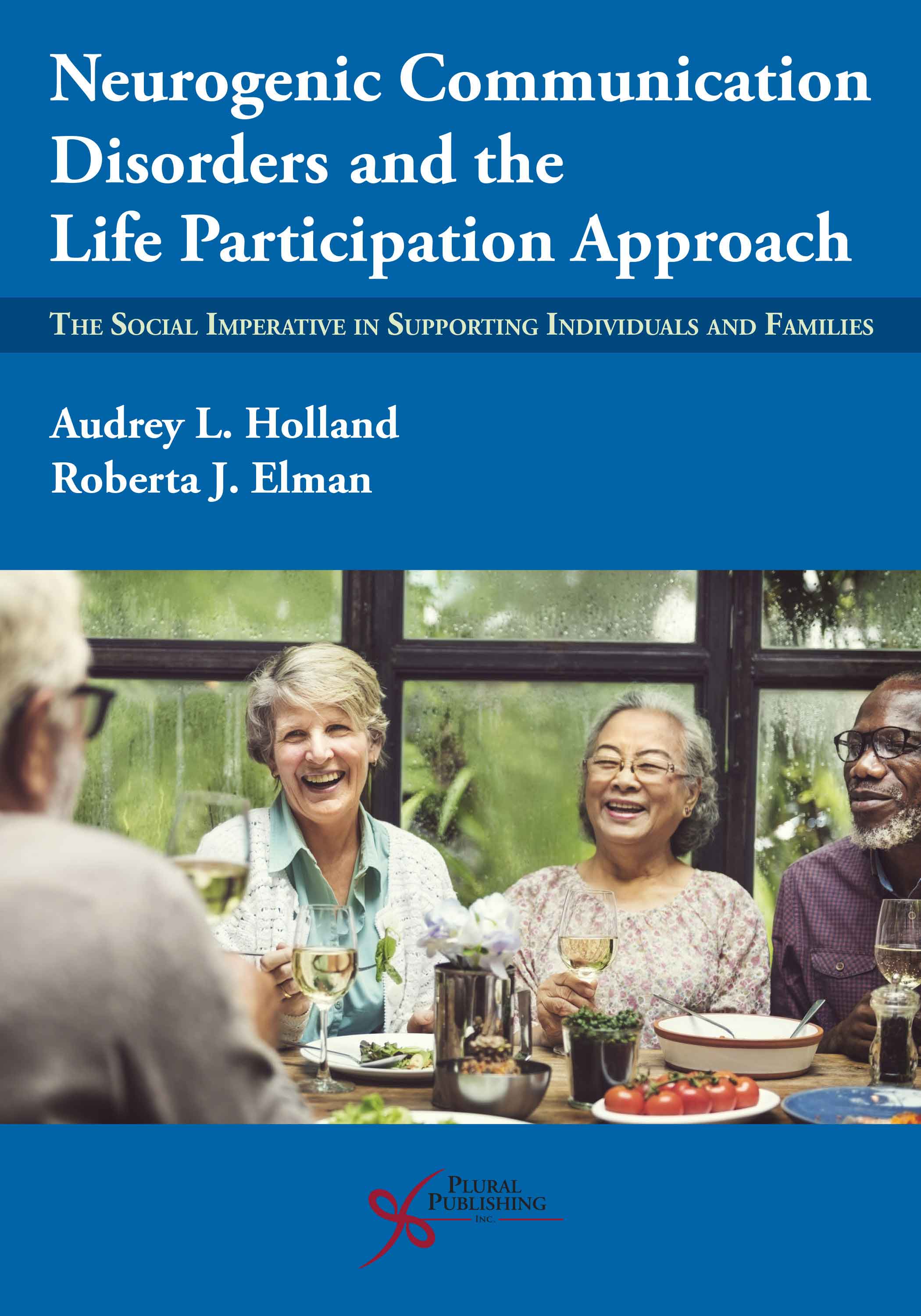
Neurogenic Communication Disorders and the Life Participation Approach: The Social Imperative in Supporting Individuals and Families
First Edition
Audrey L. Holland, Roberta J. Elman
Details: 242 pages, Softcover, B&W, 6" x 9"
ISBN13: 978-1-63550-295-4
© 2021 | Available
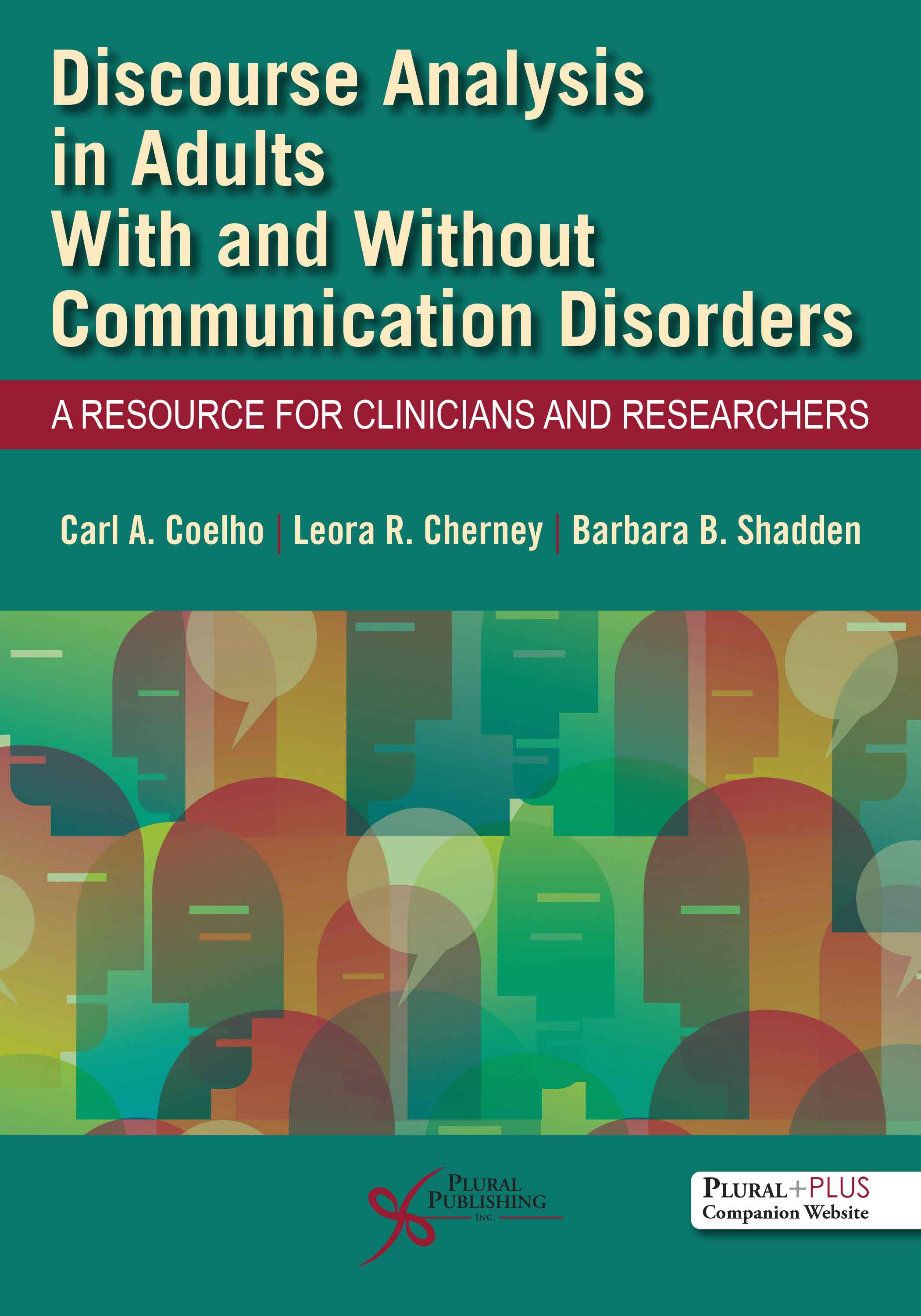
Discourse Analysis in Adults With and Without Communication Disorders: A Resource for Clinicians and Researchers
First Edition
Carl Coelho, Leora R. Cherney, Barbara B. Shadden
Details: 341 pages, B&W, Softcover, 7" x 10"
ISBN13: 978-1-63550-375-3
© 2023 | Available

